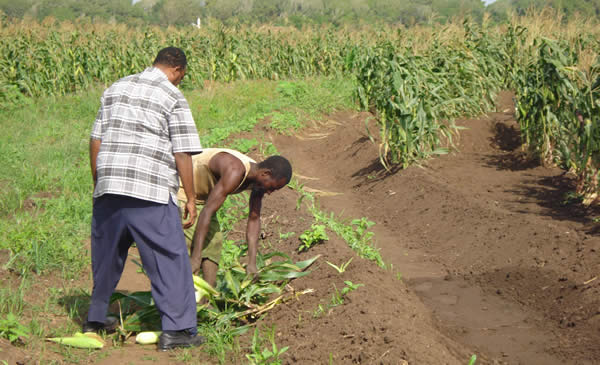
By Alex Foxbatt, Oxfam International
Agricultural communities in southern Somalia – the country’s grain basket – are being severely affected by the current drought, which has resulted in widespread failure of crops. This year’s cereal crop was the lowest in 17 years, and cereal prices have soared due to dwindling local stocks. The crisis has meant that seed, previously kept aside for replanting, has been eaten – therefore farmers don’t have seeds to plant ahead of the approaching rainy season. Even when seed is available on the market, many households do not have the money to purchase it.
Farmers are struggling to provide food for themselves and their families, and are also not receiving an income. It is expected that recovery for agricultural households will be slow, even if the rains are above average in November.
But an Oxfam project is helping farmers get through this difficult time and providing hope for a better harvest in January.
Since May 2010, Oxfam, through its local partner WASDA, has been supporting farmers in Lower and Middle Juba through a community-led food security initiative – a three-year project which supported eight villages last year and is currently supporting a further seven villages. Another project, started in 2008 and delivered through Oxfam partners CED and HARDO, has benefited over 17,000 families along the riverine regions of Lower and Middle Shabelle and Hiran. These projects have been expanded as part of our emergency response to the current famine.
The project transfers cash to farming families to help them meet immediate food needs and purchase seeds. Over the past two weeks, 3,750 farming families in Middle Juba have received between $80-85 – enough to buy food for the family for one month. Another 3,000 families will receive the money shortly.
3,000 farmers in Middle Juba and nearly 5,500 in Lower and Middle Shabelle are also benefiting from agricultural inputs such as seeds, tools and technical training, to help them grow crops in time for the next harvest in January. New water pumps and the rehabilitation of local wells are helping farmers to irrigate their land. Last week land was prepared for 50 families – one hectare per family – and maize, sorghum and cowpea seeds procured for 260 families in Lower Shabelle.
Hassan, a farmer in Lower Juba, says the project has helped his family stay in Somalia rather than moving to Dadaab refugee camp in Kenya, where tens of thousands of Somalis have fled in recent months:
“I was contemplating to move to Dadaab with my family since we did not have any food in our store due to failure of rains last season and we had no other source of income to survive. Luckily WASDA team came to our village and told us they can support us with water pumps to irrigate our farms and I was lucky to be among those selected to benefit from the support. Now I have enough food for my family until next season”.
As a result of the project, farmers in several areas affected by famine have managed to successfully harvest crops – providing food for their own families but also making staple foods more available and affordable. Due to harvesting that took place last month in several villages in the Jilib area, the price of a 50kg bag of maize reduced by nearly half – from 1.2 million to 700,000 Somali shillings (AUD $700 to $400).
Blog originally published by Oxfam International